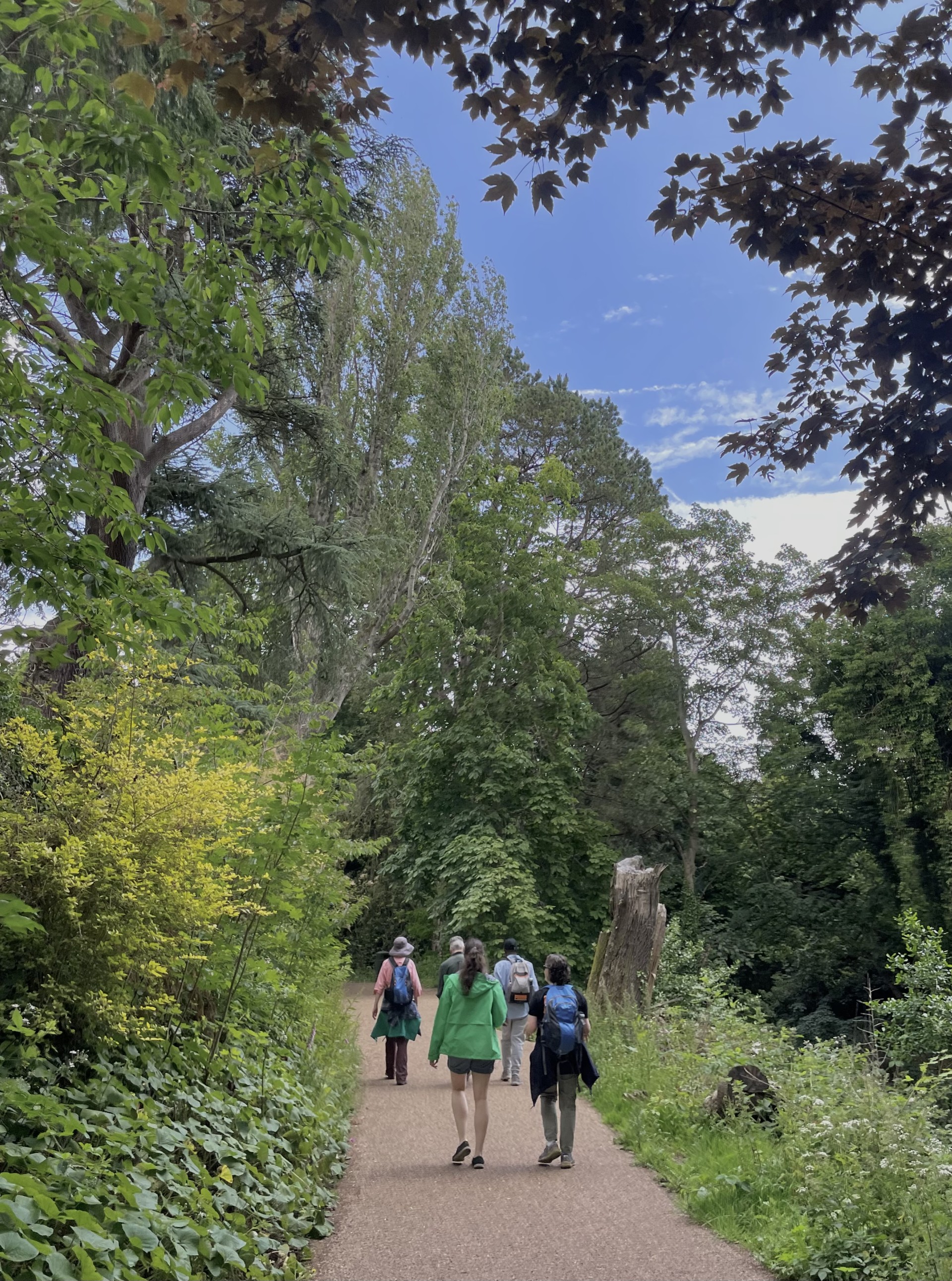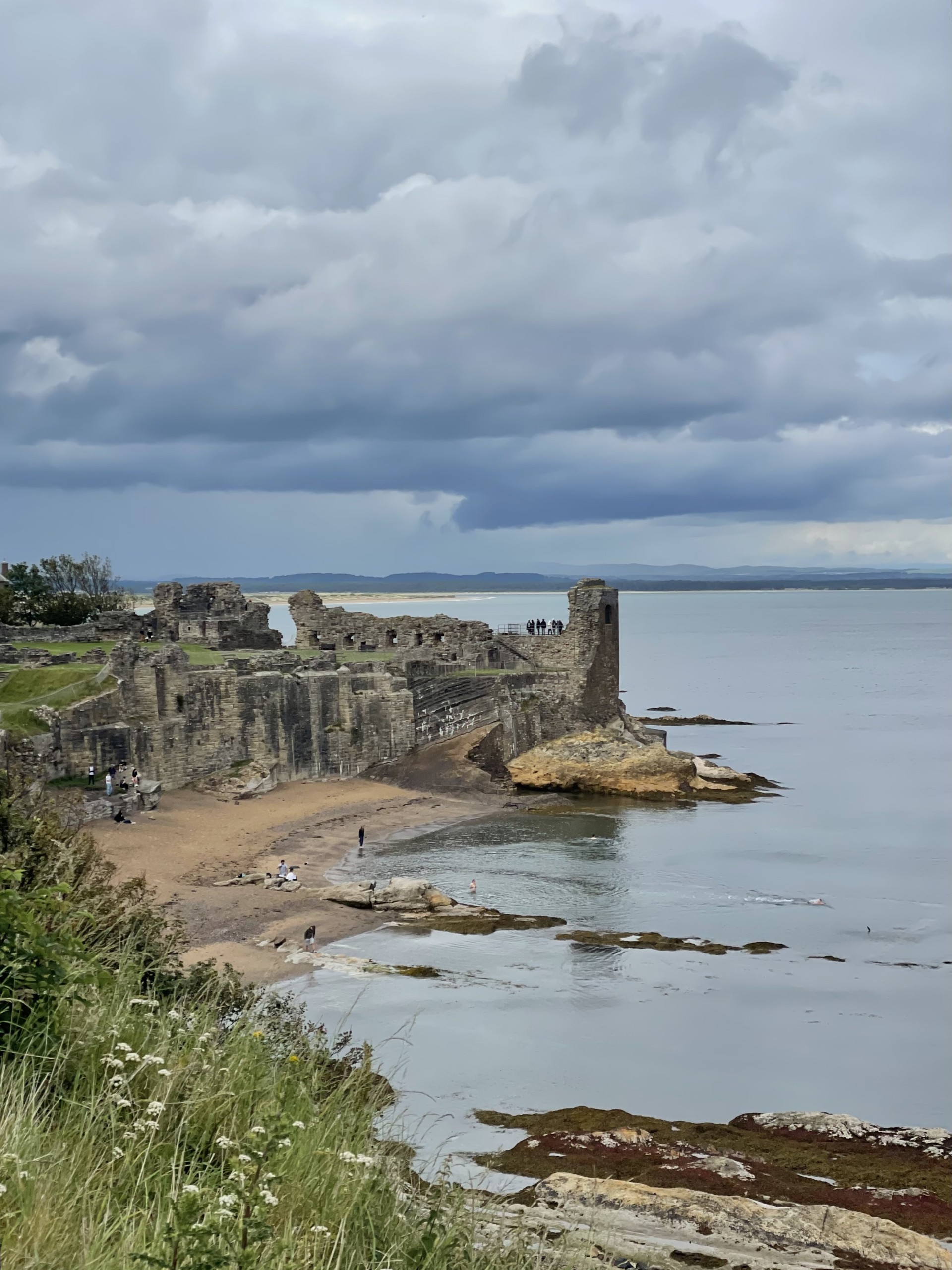Refugee Tales - Scotland Solidarity Walk
This summer the AVID team joined various walking events hosted by Refugee Tales. In June, Refugee Tales hosted their monthly walk in Scotland, beginning at Craigtoun Country Park and ending at the Wardlaw Museum in St Andrews. In this blogpost, Saba reflects on her experience of joining the walk.

On Sunday the 22nd of June, I attended the Refugee Tales Walk held in Scotland, one of their monthly walks taking place across the country in solidarity with refugees, people seeking asylum and those who have been held in immigration detention. It is an initiative by Gatwick Detainees Welfare Group, bringing people together to platform the experiences of those who have been detained and to raise awareness of both the reality and injustice of this experience.
The walk ended at Wardlaw Museum, featuring an exhibition titled ‘Rewrite the Future’ – one that asks for an expansion of our imagination, and a commitment to recreating the world through the way we navigate it presently.
Fragments of the day include reading poems on ‘hope’ written by secondary school students in Scotland, including those from refugee backgrounds, finding commonality in their dreams for the future.
Or walking with what began as a small group of strangers, finding comfort in both the silence and our conversations. I would ask what had brought them here today and naturally have the question turned on myself.
I had learnt of the walk through work, and therefore I was there partially in a professional capacity. This felt like a lazy response, one that was both dishonest and inaccurate in its omissions. Why I was there, and what I wanted from the future, felt much larger – and it involved a reflection of histories and geographies that made this possible.
I joined the team at AVID recently, having moved from Australia to the UK earlier in the year. It was a decision I made in a way that I can best describe as recreational.
Inversely, my father was a refugee. He left his home in Kurdistan to try and settle in Australia, helping my mother migrate in the following years. They had lived through the violence of the revolution and resettled in the absence of family or familiarity, never to work in their chosen careers again.
My experience contrasts theirs, but even their story is privileged over the rest of our family still in Iran. They have remained not out of choice or for lack of want, but due to lack of opportunity. I am keenly reminded of this when I visit; my ability to come and go while they are always waiting.
My movement is enabled purely by the circumstances of my birth, just as they are restricted by theirs. It is impossible to not be struck by the arbitrary nature of this. I am less in need, and no more deserving, but I am granted it regardless.
It is this knowledge that compels me to work within this space, and why I find it such a privilege to do so.
Movement is natural; it is our right as people who are born into this world and share it with one another. It is historical, and part of human exploration, but it is also responsive, and can happen out of fear, need or as a matter of force.
Movement is restricted and bureaucratised, it is unfairly granted, and it is often punished. Immigration detention is the ultimate expression of this.
Refugee Tales shows us that things don’t have to be this way. In fact, the world is constantly changing, and we are inextricably part of this process.
Our daily lives, the way we connect with people and the stories we share, are part of this constant recreation of the world.
My walk was a powerful way of not only remembering this responsibility, but also the joy and hope that exists within it. It is collective resistance – a refusal to accept detention and the conditions that create it, while actively nurturing communities that have always, and will continue to, exist outside of these confines.


Find out how you can join Refugee Tales and walk with them by visiting their website.